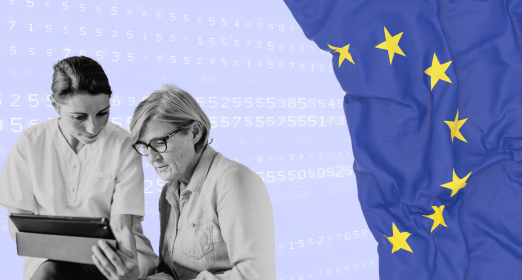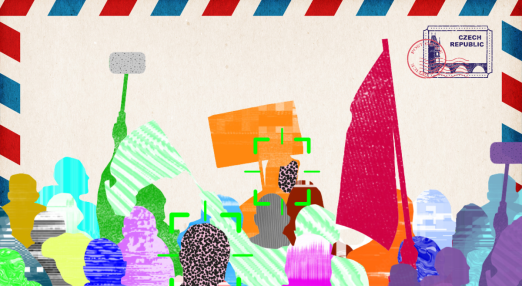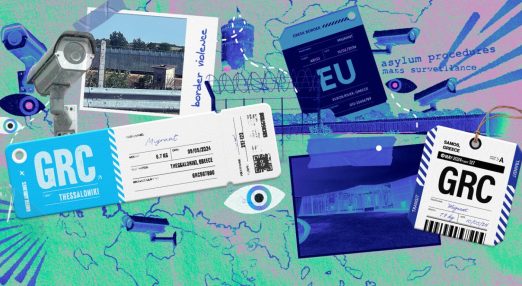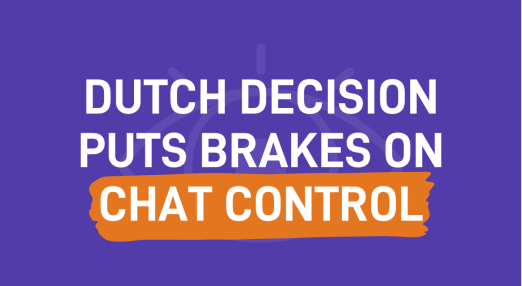Privacy and data protection
Privacy and data protection are essential for us to live, connect, work, create, organise and more. Governments and companies have long used mass surveillance for control trying to legitimise snooping for health, security or other reasons. The near-total digitisation of our lives has made it easier to control, profile and profit from our attention, data, bodies and behaviours in ways that are very difficult for us to understand and challenge. European data protection standards such as the GDPR are a good step forward but we need more to effectively ensure enforcement and protection against unlawful surveillance practices.
Filter resources
-

Rushed EU eID Wallet risks privacy and security: Calls for safeguards are getting ignored in hasty eIDAS implementation
From a visit to the doctor to public transport tickets , the European eID will handle our most sensitive personal data in a wide range of every-day applications. Yet, speed seems more important to the European Commission than a properly functioning eID system that is safe & secure to use.
Read more
-

Prioritising safety, participation, and community care: A vision for our digital future
Together, we can protect human rights, strengthen democracy, and reshape societal systems. Read about our commitment to prioritising safety, participation, and community care, as part of our Vision for 2024 and beyond.
Read more
-

Biometric surveillance in the Czech Republic: the Ministry of the Interior is trying to circumvent the Artificial Intelligence Act
EDRi-member Iuridicum Remedium draws attention to the way biometric surveillance at airports should be legalised in the Czech Republic. According to the proposal, virtually anyone could become a person under surveillance. Moreover, surveillance could be extended from airports to other public spaces.
Read more
-

Surveilling Europe’s edges: when digitalisation means dehumanisation
In May 2024, Access Now’s Caterina Rodelli travelled across Greece to meet with local civil society organisations supporting migrant people and monitoring human rights violations, and to see first-hand how and where surveillance technologies are deployed at Europe’s borders. In the first of a three-part blog series reflecting on what she saw, Caterina explains how, all too often, digitalising borders dehumanises the people trying to cross them.
Read more
-

Dutch decision puts brakes on Chat Control
This controversial draft EU law has seen so many twists and turns that it’s giving us whiplash. Under renewed pressure from Hungary’s Viktor Orbán, some lawmakers had hoped they could finally get enough support for the controversial bill this autumn. But following a vital last-minute decision by the Netherlands, we are safe from “Chat Control” – for now.
Read more
-

EDRi-gram, 25 September 2024
With summer on its way out, there might be a chill in the air. But there’s none to be found in Brussels and the digital rights world. Last week, we were glued to our screens as the European Commission President Elect, Ursula Von Der Leyen, announced the Commissoners-Designate and what they’ll be in charge of. Now, these Commissioners will go through live-streamed hearings at the European Parliament next month before starting work. We’ll be watching with interest… and maybe popcorn. This week, we’re also concerned about the impact of age verification proposals on fundamental rights and the well-being of children and young people. Spoiler alert: it’s not good. Evidence & lived experiences show these tools are dangerous, discriminatory and unsafe. EDRi and 63 organisations and experts wrote to the European Commission to urge them to halt proposals for using such tools in the implementation of the Digital Services Act (DSA) and the eIDAS Regulation. Now that we’ve all firmly, albeit sadly, turned off our summer out-of-office messages, it’s also time to catch up on what Google, Meta, X and other tech giants have been up to over the summer, especially with the DSA and Digital Markets Act (DMA) in place.
Read more
-

Making decision-making just and accountable: A vision for our digital future
Together, we can protect human rights, strengthen democracy, and reshape societal systems. Read about our commitment to making decision-making just and accountable, as part of our Vision for 2024 and beyond.
Read more
-

Open letter: The dangers of age verification proposals to fundamental rights online
On 16 September, EDRi and 63 organisations, academics and experts in privacy, encryption, child safety, sex workers' rights and consumer rights issued a joint statement urging the European Commission to prioritise effective child safety measures while expressing serious concerns about the suitability, proportionality, and negative impact on fundamental rights of current age verification proposals.
Read more
-

What the arrest of Telegram’s CEO means for digital rights
French prosecutors have charged Telegram CEO Pavel Durov for illegal content disseminated by users of his platform and the company’s failure to cooperate with law enforcement authorities. EDRi is following this case with great concern, here is why.
Read more
-

EDRi-gram, 11 September 2024
With the post-election shake-up and the upcoming appointment of new European Commissioners, both governments and tech giants are making moves that could threaten our rights. In Denmark, efforts to broaden the definition of antisemitism, including criticism of the Israeli state, may lead to the misuse of the Terrorist Content Online Regulation to silence pro-Palestinian voices. In France, legal action against Telegram’s co-founder has intensified calls for stricter enforcement of the Digital Services Act. At the EU level, we’ve seen a troubling decision by the European Commission to cut funding for free software projects. In light of these challenges, and as we prepare for the next EU mandate, we’ve launched a collective strategy process with our members and partners to ensure civil society’s voice is heard in shaping the future of EU digital legislation. On 1 October, over 40 organisations will meet at the Tech and Society Summit to bring our collective vision on the intersection of technology, society, and the environment closer to decision-makers.
Read more
-

Prioritising planet care: A vision for our digital future
Together, we can protect human rights, strengthen democracy, and reshape societal systems. Read about our commitment to empowering people to flourish and thrive, as part of our Vision for 2024 and beyond.
Read more
-

Denmark will issue removal orders without court approval: Impacts on free speech and pro-Palestinian voices
Removal orders in the Terrorist Content Online (TCO) Regulation currently require prior court authorisation in Denmark, but this will soon change as a consequence of a political agreement to strengthen the fight against antisemitism. Together with a broadened definition of antisemitism focusing on the State of Israel, the already highly problematic TCO Regulation could be further leveraged by Danish authorities for arbitrary censorship of pro-Palestinian voices on social media.
Read more
